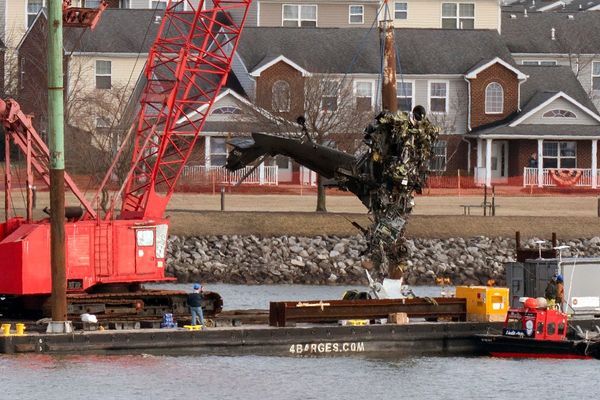
If politics is a soap opera, the people of Canvey Island switched off a few years ago. This is England at its most Conservative, literally: the island is in the constituency of Castle Point, which delivered the highest vote share (76.7%) in Britain for the party at the 2019 election.
The Tories’ looming appointment with electoral calamity is evident from the responses I receive when visiting this Essex coastal town, which range from indifference to contempt. There are plenty of older folk (a quarter of the residents in the constituency are aged over 65) but also a sprinkling of families, as well as shirtless young lads bombing down the high street on bikes, passing union flag bunting on the railings. Ask about the election, and some respond as if it’s the first they’ve heard of it, others like it’s a mild trauma they’d rather forget.
“I am not going to vote,” becomes a stock answer. Worryingly for the government, many of those answers come from people who plumped for the Conservatives last time, such as Dave, a 78-year-old pensioner. He cites a question from the BBC leaders’ debate in Nottingham last Wednesday, which comes up unprompted a few times here: “Are you two really the best we’ve got to be the next prime minister of our great country?” If there’s any comfort for Sunak, Dave dismisses Farage as a “one-man band”, with little to back up his policies.
That said, Reform has become a repository for the hopes of many former Tory supporters here. Steve, aged 70, is washing his car in the sun. A former printer and proud trade unionist, he tells me he was diagnosed with cancer just before the pandemic and despairs of an NHS that is struggling to function, with English waiting lists hitting 7.57 million. “My partner, she’s got four appointments for four different issues, and we’ve had to go private,” he tells me. He resents this for two reasons: because they struggle to afford it, and “you’re letting people down if you go private because you’re letting the government off”.
Steve believes both Labour and the Tories have failed in office, so even though he doesn’t “really agree totally with Farage”, he thinks Reform will shake up the political establishment. His disillusionment with Labour stems from a belief that the party failed to “regulate the banks and they were lending money to everybody”: a criticism usually levelled by the left, but which led him to the Tories. And then “there’s the foreigners coming in”.
When I suggest there are very few migrants here – according to the last census, less than 5% of local residents are foreign-born – Steve brings up the island’s Jewish community. Some Haredi Jews have moved to the island in recent years, principally from Stamford Hill in north London, in search of affordable homes, but they’ve been a settled British community for a century. They nonetheless crop up in other conversations I have – often as a target of resentment simply because they are visibly different.
Depressingly, there is no shortage of locals hurt by the broken economic system, but utterly repelled by politics. Tara, an insurance worker in her late 20s, puts her kid’s bike in the back of her car as she explains why she has never voted. “I think it’s all rigged, it’s just obvious that they do what they want, when they want,” she says, and yet she lists low wages as her key concern. Another young single mother, who finds the very concept of voting alien, raises the cost of housing.
It is a struggle here to meet committed Tory voters in what was, to repeat, the most Conservative seat in Britain; generational loyalty is the best Sunak can hope for. Sitting outside Sue’s Cafe, 67-year-old Carol is sticking with the Tories because “they stand up for pensioners”: many polls suggest the only age group the Tories are leading is the over-65s, and even that lead is drastically diminished. Her husband – perched under a sun hat, about to devour a bakewell tart – will cast his vote for Reform because of immigration.
Bill and Jason (not their real names) are in their 60s, cheerfully marching to the beach in T-shirts with loud colours. They’ve abandoned the Tories for Farage. While they praise those “foreigners” who are “great people”, they also say there are “too many people” and refer to the “Jews on the island” when I say I haven’t met any migrants here. Bill complains that he can’t even joke over his garden fence about English football. “You can’t even fly the England flag,” adds Jason. Is that really true, I interject. “£2,000 fine from the government, if you’re caught.” Really? “Yeah, if they policed it, they reckon it’s a £2,000 fine to fly the St George’s flag while the football is on.” I suddenly felt I was trapped in that Stewart Lee routine. It transpires that, while clearly there is no such ban, fines can be levied if a flag of any description exceeds two square metres, or if it obstructs the vision of other motorists when attached to a car: in other words, common-sense measures.
Here was a conversation that has reflected British political discourse in the latter half of Tory rule. With no answers on offer to, say, the disintegrating NHS, stagnating real wages or crumbling infrastructure, paranoid myths about trivialities have often filled the vacuum. So has fear about marginalised minorities. “What’s going on now with transgender and all that,” says Bill. What did he mean? “What are Labour gonna do? They’re gonna teach them all this. I know you’re gay, aren’t you?” When he brings up women’s safe spaces, it’s almost as though he’s just reciting something he has half-heard.
That confidence in the Conservative political project has collapsed is evident in this once ardent stronghold: disinterest, resignation and scorn reign supreme. The Tory vote that holds up will be defined by an absence of enthusiasm. What is most worrying, though, is that it feels as though this is only the beginning, that the foundations of something new – a Faragist insurgency against a Starmer government – are being laid. It will likely win ample support from locals here, on this island below sea level, with its flood defences that have, for decades, tried to protect the community from coming storms.
Owen Jones is a Guardian columnist
Do you have an opinion on the issues raised in this article? If you would like to submit a response of up to 300 words by email to be considered for publication in our letters section, please click here.







